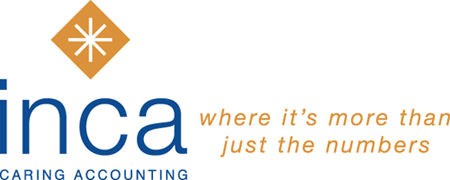This is the third blog in a series offering advice and guidance to anyone considering starting a new business. We’ll be publishing further blogs over the coming months.
If you’re new to self-employment, navigating the tax system can seem complex, but to ensure compliance and make informed financial decisions, it’s essential you understand the basics.
The way you choose to operate your business will determine how your tax is calculated and how and when you will have to pay. In this blog, we’re going to present an overview of how tax applies to sole traders and partnerships – excluding aspects of tax relating to VAT and payroll, which we’ll be addressing in a future blog.

How Tax Applies to Sole Traders & Partnerships
If you operate your business as a sole trader or as an ordinary or limited liability partnership (LLP), you are self-employed. As such, you are personally liable for tax, and it’s your responsibility to report and pay any tax due to HMRC through the Self Assessment system. Although partnerships are also required to complete tax returns, it’s the individual partners who must pay tax relative to their share of the business.
You will be liable for the following taxes:
- Income Tax
You must pay Income Tax on any profit you make. Your profit is calculated by taking the income/revenue you generate and deducting any costs and allowable expenses incurred in making those sales.
How much Income Tax you have to pay will depend on your personal circumstances and the level of profit you generate. Everyone is entitled to an Annual Allowance, qualifying them to earn £12,750 tax-free. Above this, earnings between £12,750 and £50,270 will be taxed at 20%. A higher rate of 40% applies to earnings between £50,270 and £125,000, while earnings over £125,000 will attract an additional rate of 45%.
- National Insurance Contributions (NICs)
When you’re self-employed, you’re subject to two types of National Insurance. Class 2 NI is your contribution towards your state pension and is charged at a flat rate of £3.45 per week. The level of Class 4 NI you pay will depend on your profit. Profits between £12,570 and £50,270 will be charged at 9%, while profits over £50,270 will be charged at 2%.
Reporting & paying Income Tax & National Insurance
Each year, you’ll have to complete and file an online Self-Assessment tax return to HMRC by midnight on 31st January following the end of the tax year: this is also the date by which you’ll have to settle your tax bill.
Other things you need to be aware of:
- If you take money out of your business: As a self-employed business owner or partner, the amount of money you take out of your business in the form of drawings won’t affect how much tax you’ll have to pay (unless you cease to be a member of a partnership, in which case you should seek advice). Regardless of whether you choose to take out a little, a lot, or nothing, your tax bill will be the same.
- At the end of the first sentence please add the following “(except if you cease to be a member of a partnership – please seek advice in this situation)”.
- Using allowable expenses to reduce your tax liability: Sole traders can reduce the amount of tax they have to pay by setting certain expenses against their profits. Allowable expenses include materials, marketing, advertising, and costs associated with running an office. Some permissible expenses may be subjective or related to the specific nature of the business.
- If you don’t make a profit: Businesses – especially new ones – don’t always make a profit. But sole traders, self-employed and LLP partners can set losses made by the business against other income or use them to reclaim tax paid elsewhere – perhaps even before the business was established. The ability to do this can be extremely useful if, for example, you have high set-up costs, need to purchase equipment or develop software before you’re in a position to begin trading profitably. Tax can be reclaimed at the highest rate applicable, so if your business makes a loss and you paid tax at 40 or 45% when you were employed, you may be able to recover part or all of your loss at this rate.
Offsetting losses in this way can help a business to become established, but once it is making regular profits, it may be advantageous from a tax perspective to consider a different business structure. When you reach this stage, seeking professional advice will be crucial as your personal and financial circumstances will be unique.
- Payments on account: If you’re new to self-employment, payments on account can be confusing. If your tax bill is more than £1k, HMRC will require you to make two ‘payments on account’ – each equivalent to half your tax bill. The first installment will be due by 31st January, and the second by 31st In other words, in January, HMRC will require you to pay not only for the previous tax year but also make a 50% contribution to the current tax year as well.
Talk to Inca & Give Your Start-Up the Best Start
Are you considering starting your own business? For more than 20 years, Inca has specialised in working with the owners of micro to small start-ups, helping them build and grow successful, sustainable businesses. 63.9% of the new start-ups we work with get to celebrate their fifth birthday – a success rate more than 300% higher than the national average!
To learn more about how we can support and advise you on your start-up journey, call us today on 01235 868888 or email us at [email protected]




